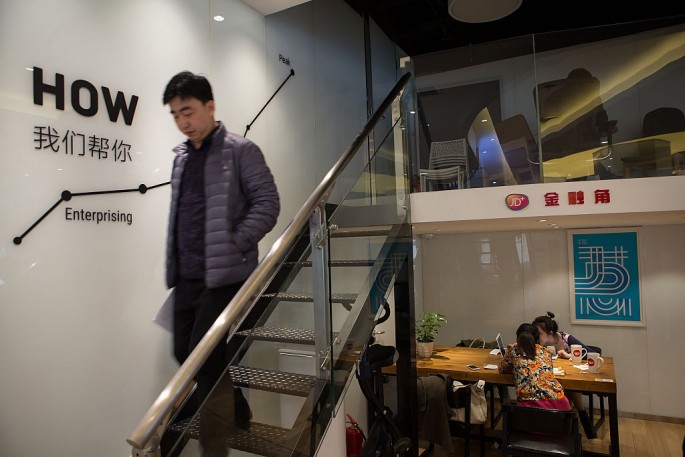A number of tech incubators are providing young entrepreneurs, especially IT startups, with skills and training on how they can start, grow business and get rich in their hometowns, the Xinhua News Agency reported.
One of them is Wei Wei, who has returned to his hometown Lanzhou, capital of Gansu Province, after almost ten years of working in Beijing.
"I've gained skills and experiences in Beijing, and I can help bring Beijing's business practices to the west," Wei, a self-confessed IT geek, said. "The IT market in my hometown is full of potential and very attractive to me."
In 2014, Wei and his friends opened a business but found it difficult because they lack the business skills.
But after a year, the government initiated training for mass entrepreneurship and innovation and incubators were set up to provide workspace and business advice to aspiring executives.
According to the report, more than 1,200 college teams have joined incubators in Gansu and received each an average investment of around 300,000 yuan ($45,000) in April.
Wei received training and services from incubator Chuanshuo Café, which opened in Lanzhou in April 2015. He was able to have his company registered, got his own offices and received regular customers. One of his customers, Guaniu, has asked his company to develop a mobile app for online payment.
Similarly, Zhou Jianzhen also returned home to Lanzhou after working in Shanghai, to set up his own online store selling in local specialties. He has now more than 80 suppliers and has earned more than 5 million yuan in the second half of last year, after getting the incubator's support and assistance.
"Incubators, policy and support are bringing people to their hometowns. Business opportunities in East China are shrinking and the potential of here is now sucking talent back west," Chuanshuo's CEO Li Guoliang said.
Deng Yubo also started an online beef noodle company after he quit his work as a college teacher. Deng said incubators can help entrepreneurs overcome their biggest difficulties such as their impatience and the high costs of starting a business.
"Incubators provide us with government resources, capital and services, which are usually difficult to find by ourselves. Affordable offices and services have slashed costs and created an easy environment for business, "Deng said.
Tibet's first incubator also opened in the capital Lhasa last month, while in Qinghai, college graduates who wanted to start business can receive support as the government has set aside 50 million yuan each year for three consecutive years.
According to Yuan Chun of Lanzhou University, incubators help attract talent. "Business models and fresh ideas brought by young start-ups are a strong incentive to economic development in the western part of China," Yuan said.



























